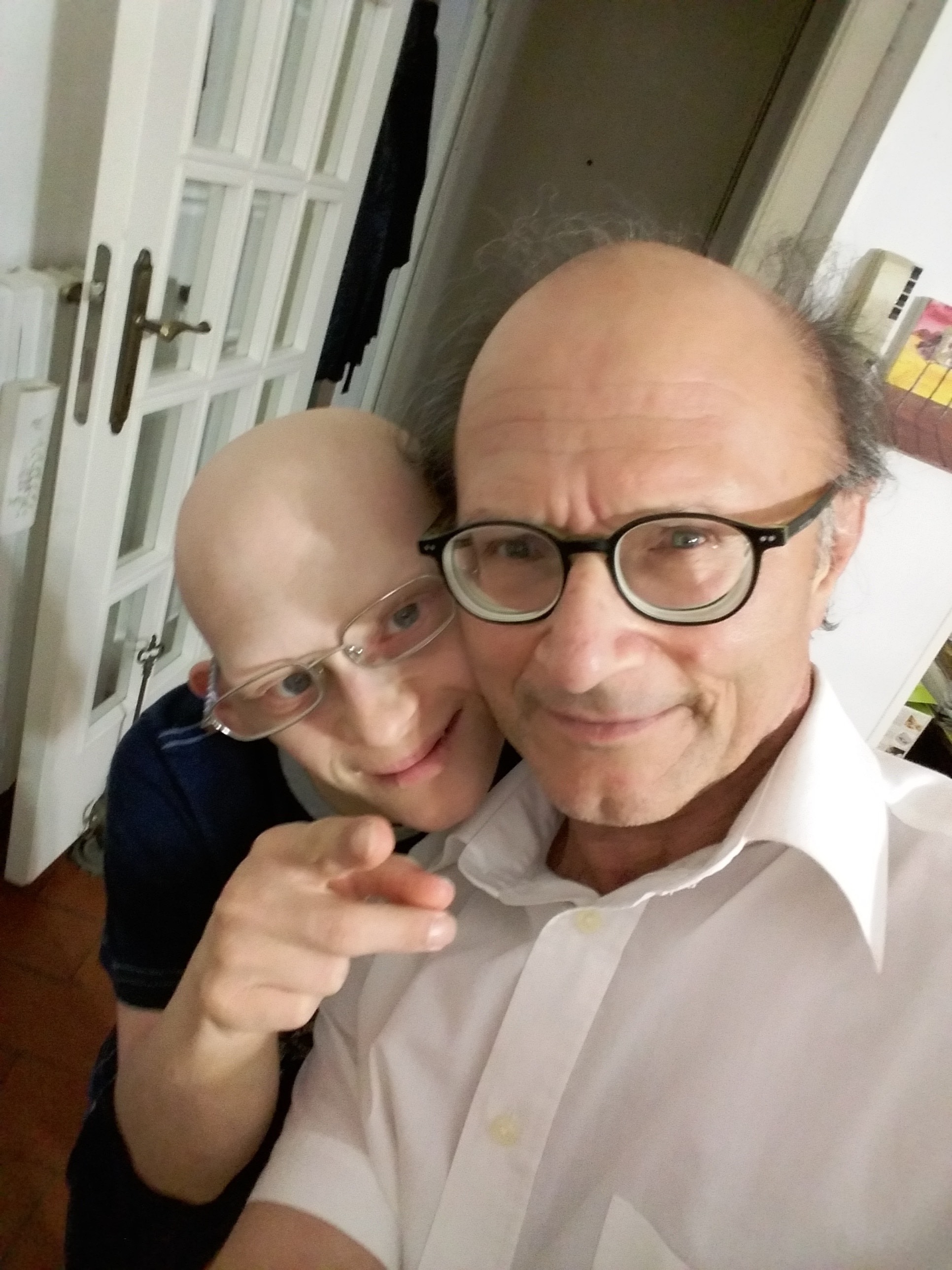“You know that Francesco doesn’t speak, right?” Asked Marco, his father. Actually, I had no idea, but I wished I had been aware, only because I did not want differences to get in the way of one of the most beautiful moments of my life. Francesco hugged me and blew kisses and smiled. Authentic love, I thought. It felt different, true and warm. Differences should never create walls, rather, bridges. Like the one that had joined my heart to Francesco’s. Precisely this mindset has been maestro (in English the word can mean teacher or guide) Marco Moschini’s existential motivation since Francesco was born, 30 years ago. “When Francesco came into our lives I struggled and had to rely on all the inner resources I could find within myself in order maintain some sort of psychological balance. After a long and necessary period of time in which I made peace with the pain a parent feels when their child is born with a severe illness, I realized that talking to other children about my son, writing about him, was of great help. It became my way of loving Francesco, but also of taking care of my own feelings and emotions”.
How many books have you written Marco? As a teacher and author what is your opinion as to the social problems youth confronts today? Can school help?
I have published 19 books. However there is one that is very dear to me: “Don’t think you can make fun of me!”, by the Raffaello Editorial Group,2012.
Recurring episodes of bullying highlight a social trend in which weakness and diversity seem to belong to a subhuman category by which mockery and contempt become legitimate and justified behaviors. Children absorb this atmosphere and become both persecutor and oppressed. In “Don’t think you can make fun of me!” I tried to give children ages 4 and up the verbal tools they need to defend themselves and stand up to bullies. The main character is a little boy I happen to know: Francesco. He is bald, short, has big ears and wears glasses.
In no age and time have children ever occupied such a central position within the family structure. Educating our children has become about doing all we can to make them happy. Usually this corresponds to letting them do whatever they please and giving them everything they want immediately. The result of this process is dramatic. Children cease to desire and dream because their needs are fulfilled the moment they arise. Their sense of limit is lost, for there is nothing parents will not do to satisfy their children. Desire can exist only if children are able to see and recognize that not everything is always possible the moment they ask for something.
As for our school systems, I believe education needs redeeming. In the sense that we should abandon the current method, where schools are places of “performance” and “education” intended as the sum of information we can stuff into one human being. Pedagogy by “proficiency” does not see children’s eyes.
Do you think it is possible to restore society and bring back values such as kindness, empathy and solidarity? If so, how?
Today, culture as we know it is adrift. It being so gives origin to a society characterized by indifference, apathy and individualism, where appearance dominates our lives. We are prone to passively accept common opinion. We are stuck in the present, for lack of a future.
However, there is a positive aspect to all this. It consists in the fact that, there are people, both inside and outside schools, whom are capable of reorganizing hope. They are able to give youth a framework full of meaning and behaviors which open the path to their ability to share thoughts and emotions.
Reorganizing hope means:
- working on feelings through stories, fairy tales and narrative, allowing emotions to become words rather than rash gestures;
- valueing kindness. In 1942, before being deported to Aushwitz, Hetty Hillesum wrote: “…it is a quiet and discreet value, a form of courage without violence, a form of strength without brutality: and to oppose barbarity one must be strong”;
- build open and creative minds, by “educating our view” towards diversity. Diversity is not merely the obvious, it is not only a wheelchair or a different color of skin. It is also in the different types of normality we encounter in other people’s lives, on a daily basis.


